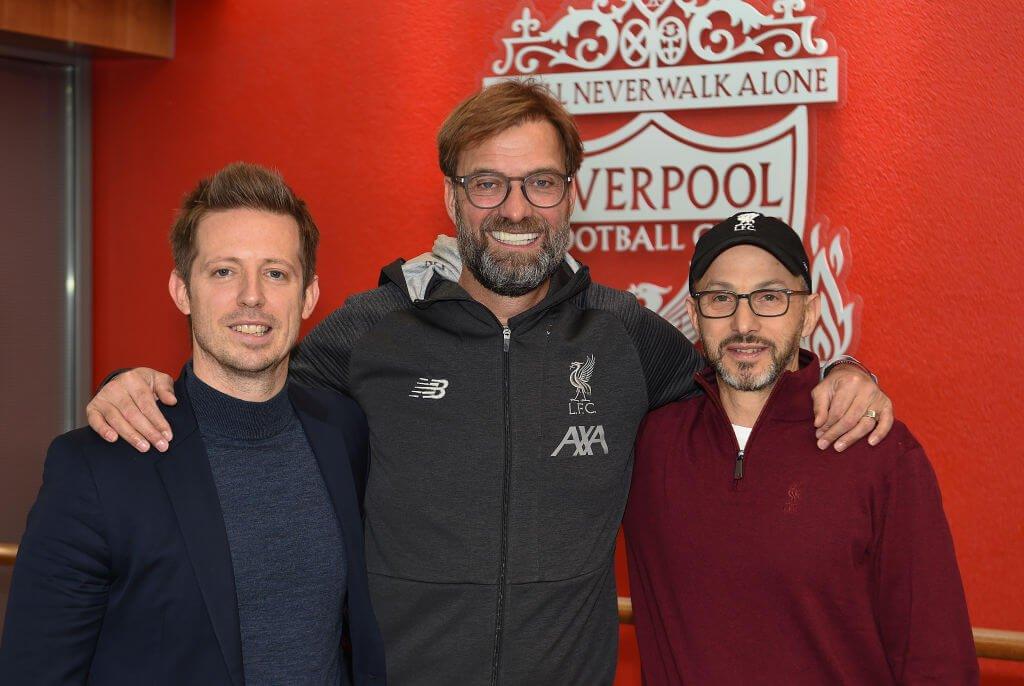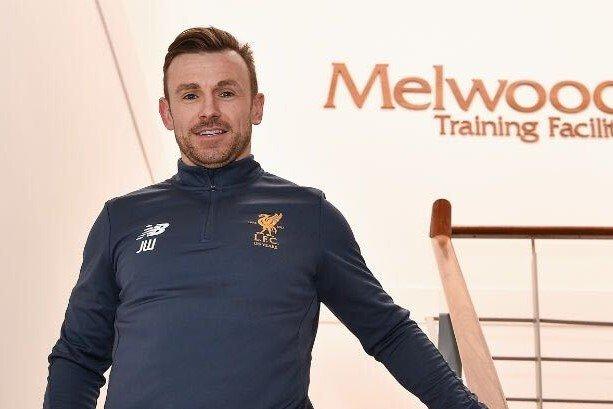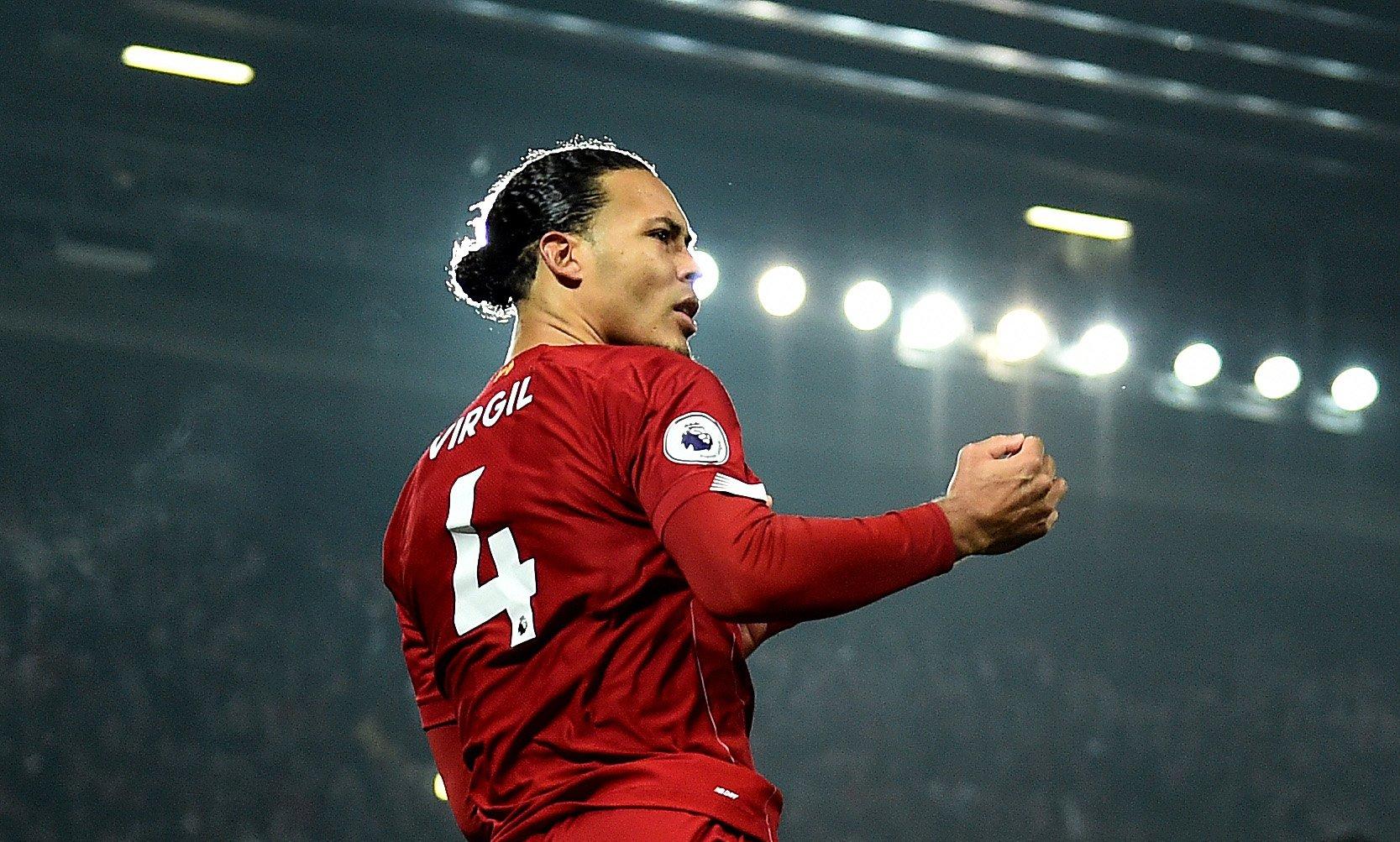Losing Michael Edwards would be a big step into the unknown for Liverpool. He has laid the blueprint for success

Chairman Tom Werner was basking in the glory of Liverpool’s Premier League title triumph when the conversation turned to the contribution of their sporting director.
“Michael Edwards operates under the radar but his role in our success cannot be underestimated,” Werner told The Athletic.
“He has been pivotal. He has worked tirelessly to create this incredible environment. It’s not simply about going out and finding the highest-priced target. It’s about developing our talent and making long-term arrangements with them so there’s consistency year after year.”
The esteem in which Edwards is held by the owners, Fenway Sports Group, after a decade of service to Liverpool could not be higher. He is a shrewd executive who has helped turn their dreams into reality. He has made their self-sustaining business model work — despite the fact that rivals have much greater financial resources.
That is why the prospect of losing him when his contract expires in the summer of 2022 is a bitter pill to swallow.
The Athletic revealed on Monday that Edwards is expected to step down at the end of the season. Senior club sources insist the owners have not given up hope of persuading him to stay but accept he may wish to pursue a new challenge.
Julian Ward was promoted to the role of assistant sporting director last December and has further enhanced his reputation since with his involvement in various contract renewals and transfer negotiations. Liverpool-born Ward, who was the club’s loan pathways and football partnerships manager for five years, would clearly be a strong candidate to take over but they are huge boots to fill.

Ward would be a leading contender to replace Edwards (Photo: Liverpool FC)
Edwards, who was initially headhunted from Tottenham Hotspur by Damien Comolli in 2011, has always shunned the limelight. He never speaks to the media. He is rarely even recognised walking outside Anfield and that suits him perfectly. He has always subscribed to the idea that actions speak louder than words.
And his body of work during his time at Liverpool represents a booming statement in terms of his status at the highest level. His remit since stepping up from technical director to sporting director in 2016 has been vast.
Jurgen Klopp built something incredible to win the Champions League and the Premier League but it was Edwards who ensured he had all the tools to do so.
When Klopp initially favoured signing winger Julian Brandt from Bayer Leverkusen in 2017, it was Edwards who championed the claims of Mohamed Salah. Klopp was won over and 127 goals later that £43.9 million fee that was agreed with Roma has been repaid many times over.
It was Edwards who saw the potential in Andy Robertson who was plucked from relegated Hull City for £10 million. He managed to talk Roma down from £90 million to £65 million before signing Alisson. The signings of the Brazil No 1 and Virgil van Dijk for a club record £75 million proved to be transformative.
Astute deals for Fabinho and Diogo Jota were sealed quickly and quietly, and their impact on the field showcased the outstanding work of Liverpool’s analytics department.
Edwards’ ability to drive a hard bargain has been repeatedly underlined by the fees he has managed to command for fringe players such as Kevin Stewart, Jordon Ibe, Dominic Solanke, Brad Smith, Danny Ward and Mamadou Sakho. He negotiated the £142 million sale of Philippe Coutinho to Barcelona which effectively paid for Alisson and Van Dijk.

Edwards helped secure Van Dijk for £75 million from Southampton (Photo: Andrew Powell/Liverpool FC via Getty Images)
According to transfermarkt.com, Liverpool’s net spend of £153 million since the summer of 2017 is lower than 10 other top-flight clubs. That is remarkable given what they have achieved during Edwards’ time at the helm.
Over the same period, the club’s wage bill has rocketed with Edwards also responsible for contract renewals. That has been the priority this summer with Trent Alexander-Arnold, Fabinho, Alisson, Van Dijk and Robertson all penning lucrative extensions. Jordan Henderson will soon follow suit with discussions continuing with Salah.
The scope of his job has spanned the new training ground project to overseeing the data and analytics, sports science and medical departments. One of his key appointments was bringing in Ian Graham as director of research. Graham, head of recruitment Dave Fallows and chief scout Barry Hunter are three pivotal figures in the football operations unit in terms of the strategy and the process of talent identification and retention at all levels.
If “Eddie” — as he’s commonly known inside the club — does walk away next summer, then the elite structure he has put in place will remain. FSG won’t suddenly rip things up and start again. The blueprint for success is there.
However, the holy trinity of Klopp, Edwards and FSG president Mike Gordon, which has served the club so well, would be no more. The dynamic would change. There would be a void. They would miss his knowledge and acumen in the decision-making process.
When Edwards was a member of the dreaded transfer committee during Brendan Rodgers’ reign, the manager saw him as a threat to his authority. Friction existed. Edwards was portrayed by some as merely a number cruncher who relied solely on spreadsheets but that was never the case. He has always combined modern methods with old school scouting, including gathering extensive character references on potential transfer targets.
Klopp, who had worked with sporting director Michael Zorc at Borussia Dortmund, embraced Edwards’ input from the start. He likes the fact that Edwards speaks his mind. They don’t always agree but mutual respect abounds.
“It is a very good relationship. He is a very thoughtful person,” Klopp said last year. “We don’t always have to have the same opinion from the first second of a conversation, but we finish pretty much all our talks with the same opinion or similar opinions.”
Edwards can be ruthless, underlined by how Georginio Wijnaldum was allowed to leave as a free agent this summer rather than giving him the new contract he wanted. Klopp does not always get his own way.
Agents who deal with Edwards regularly talk about a man “who can be blunt and doesn’t suffer fools gladly”. There’s a sense of surprise that he would walk away from Liverpool.
The timing is significant. Next summer has been talked up by senior club sources as the window when the process of “refreshing and regenerating” the playing squad will crank up. There is an acceptance that they can’t allow too many players to grow old together. That overhaul now looks like it won’t be overseen by Edwards.
The same goes for the process of appointing Klopp’s successor. The German’s contract runs until the summer of 2024 and he has previously spoken about taking a sabbatical when that deal expires. Those close to him expect the 54-year-old to stick to that plan. By then, Klopp’s Anfield tenure will have spanned nearly nine years.
So the new sporting director will not only have to effectively build a new team but also oversee the transition from Klopp to his successor within two years of taking over. That’s some in-tray.
Edwards believes the time is right to pass the baton on. He often talks to colleagues about needing to inject new ideas to avoid things going stale. But life without him at the helm would be a sizeable step into the unknown for FSG. He will take some replacing.

 63
63 